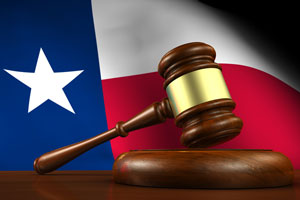The Texas Court of Appeals was recently asked whether a witness who had no engineering degree could provide expert testimony about the cause of a fire started by an electrical transformer and about the public utility’s duty to maintain the transformer. The Court of Appeals reversed the trial court’s decision to exclude the testimony.
Facts of the Case
Property owners in Houston sued CenterPoint Energy Houston Electric, alleging that CenterPoint’s negligence was responsible for a fire that destroyed a house and a commercial building. The property owners claimed they suffered $2 million in property damage and lost profits as a result of the fire.
CenterPoint maintained a light pole with a transformer between the two structures. The Harris County Fire Marshal determined that a spark from the transformer probably ignited vegetation that started the buildings on fire. The Fire Marshal did not determine the cause of the suspected malfunction that produced the spark.
Texas courts have held that a public utility, like every other business, has a duty to use reasonable care to avoid harming the public. The standard of care that is required is commensurate with the danger posed. Sensibly enough, more dangerous situations require greater care. Texas courts have concluded that whether a utility breached its duty to exercise reasonable care must be established by expert testimony.
To prove that CenterPoint was responsible for the fire, the property owners offered the expert testimony of Michael McGraw. CenterPoint asked the trial court to exclude McGraw’s testimony on the ground that he was not qualified by education or experience to offer opinions about the workings of the transformer, the cause of a fire, or the standards that a utility company should follow to assure the safety of the public.
The trial court agreed with CenterPoint. It excluded McGraw’s opinions and then granted summary judgment in favor of CenterPoint because, without McGraw’s opinions, the property owners could not prove that CenterPoint’s negligence caused the fire. The property owners appealed.
Qualifications of Expert
Texas judges must determine whether an expert witness has actual expertise in the subject about which the expert proposes to testify. General experience in a specialized field does not qualify a witness as an expert. Rather, Texas courts require the expert to have specialized knowledge that is relevant to the subject of the testimony.
Specialized knowledge can come from education, from practical experience, or from a study of technical works. McGraw completed extensive coursework in electrical engineering, although his Bachelor degree is in business administration. During lengthy employment with General Electric and Powercon Corporation, he was responsible for the design, development, and testing of electrical distribution equipment. He also owned and operated his own company that specialized in manufacturing medium-voltage transformers.
McGraw has worked with transformers that are similar to the one owned by CenterPoint since 1978. He has worked exclusively with transformers since 1996. He testified that the same engineering principles apply to all similar transformers.
While McGraw does not have a degree or a license in electrical engineering, the appellate court decided that his extensive knowledge and experience qualifies him to testify as an expert. The court concluded that McGraw is capable of giving relevant testimony that would assist the jury in understanding how a transformer might malfunction.
Standard of Care Testimony
McGraw concluded that at least three safety components on the transformer failed and that those failures caused or contributed to the fire. His expert report opined that a utility exercising ordinary and reasonable care would maintain its equipment in good working order to avoid a failure of those components. He also opined that none of the components that failed were likely to fail if they were installed correctly, inspected, and repaired or replaced if they began to show wear. If the components had been maintained in good working order, McGraw said, it is unlikely that they would have failed.
CenterPoint argued that, notwithstanding those opinions, McGraw was not qualified to testify about the standard of care that applies to an electrical utility. The court rejected CenterPoint’s argument that only someone who has worked in the utility industry is qualified to address the standard of care that utility companies should follow.
The court was satisfied with McGraw’s statement that he relied on industry codes and published standards in forming his opinions. He was sufficiently familiar with the utility’s duty to maintain transformers in good working order to testify that CenterPoint breached that duty.
The Court of Appeals reversed the trial judge’s exclusion of McGraw’s expert testimony. Since summary judgment in CenterPoint’s favor rested on the absence of expert proof, the Court of Appeals reversed the summary judgment. The property owners are now free to present their case to a jury, using McGraw as an expert witness.




